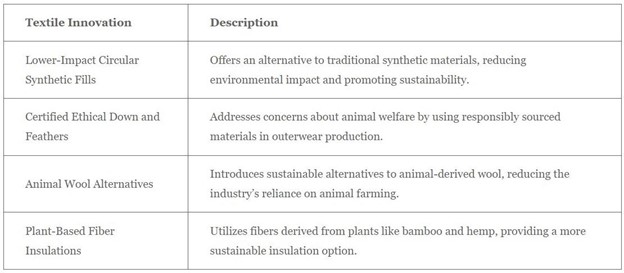
So far this year, we’ve seen some incredible ways to help tackle sustainability issues. Sustainability is here to stay. It will continue to expand in other industries to match consumer preferences.
The more industries that accept greener practices, the better the results will be.
Around 55% of global consumers will pay higher prices for sustainable products. It’s safe to say that businesses will continue to embrace greener practices.
Some sustainability trends will shape the future of many industries. Some of these include the transport, travel, and fashion industries. Today, we’ll cover some of these trends.
1. Sustainable Destinations
Various travel destinations are doing everything they can to become climate-resilient tourist destinations.
Tourism sustainability means investing in greener infrastructure that can withstand extreme weather conditions. Besides, this infrastructure has minimal environmental impact, making it a win-win solution. These practices have become a new standard in the tourism industry.
Also, many tourism destinations are doing their best to integrate carbon-labeling.
2. Sustainable Urban Mobility Solution
Cities worldwide battle to reduce carbon emissions and further promote sustainable transportation. Electric bikes have become a popular alternative for urban mobility. They’re efficient, cost-effective, and sustainable.
Additionally, incredible advancements in battery technology make electric bikes a viable option. E-bikes mark a pivotal shift in urban mobility solutions. They contribute to a healthier lifestyle and greener cities worldwide.

3. Sustainable Accommodation Is on the Rise
Sustainable lodgings are more popular now than ever. Hotels and resorts invest a lot in:
- energy-efficient systems;
- waste reduction strategies;
- and water conservation measures.
The range of sustainable accommodations is vast. It ranges from luxury eco-resorts to low-cost options, proving that sustainability is accessible at all price levels. The trend reflects the growing demand for greenwashed travel options.

4. Sustainable Travel Experiences
More travelers are seeking experiences that emphasize sustainability. Sustainable travel experiences include activities like cultural exchanges, volunteer vacations, and eco-tours. All these promote the environment while supporting local economies.
The trend known as “bleisure” combines “business and leisure.” Bleisure incorporates sustainable practices. This allows corporations to find sustainable venues for corporate retreats.
5. The New and Green Materials
The fashion industry focuses on innovative materials that help reduce the environmental impact. Expect more garments from:
- lower-impact circular synthetic fills;
- certified ethical down and feathers;
- and plant-based fiber insulations like hemp or bamboo.
These materials offer sustainable alternative trends to traditional textiles. They reduce the industry’s reliance on animal products and non-renewable resources.

6. Eco-Fashion: Rental and Upcycling Fashion
Due to its high demand, the fashion industry has a massive environmental impact. Yet consumers are aware of this issue and are doing what they can to help tackle it.
Fashion clothes rentals are a new trend. This allows consumers to enjoy new clothing styles without contributing to more waste. This trend has become popular for special occasions. You can rent a high-quality, stylish outfit rather than buying a new one. That’s why the fashion-rental method is more sustainable and cost-effective.
Another method of tackling textile waste is upcycling. Upcycling transforms waste materials into new products. It has become very popular in fashion because it is a sustainable solution.
Fashion brands use their wits and creativity. One way is to repurpose discarded materials and create stylish and unique garments. Upcycling helps reduce waste and promotes a circular economy. Rather than discarding resources, companies reuse them. It’s a win-win.
Finally, the 2024 sustainability trends in travel and fashion highlight a significant shift. They’re sustainable and promote more responsible practices. If consumers embrace sustainable options, their carbon footprint will dwindle in time.
Author’s Bio: Nikola Pantic is a Partnerships Specialist at uSERP, but also a seasoned writer shaping various industries with the written word.
Images from Blend with Nature by Gus&Lo for DSCENE Magazine – see full article here.




















no matter how hard we try, travel can’t be sustainable … there are so many problems of travel never having any chance of being sustainable.